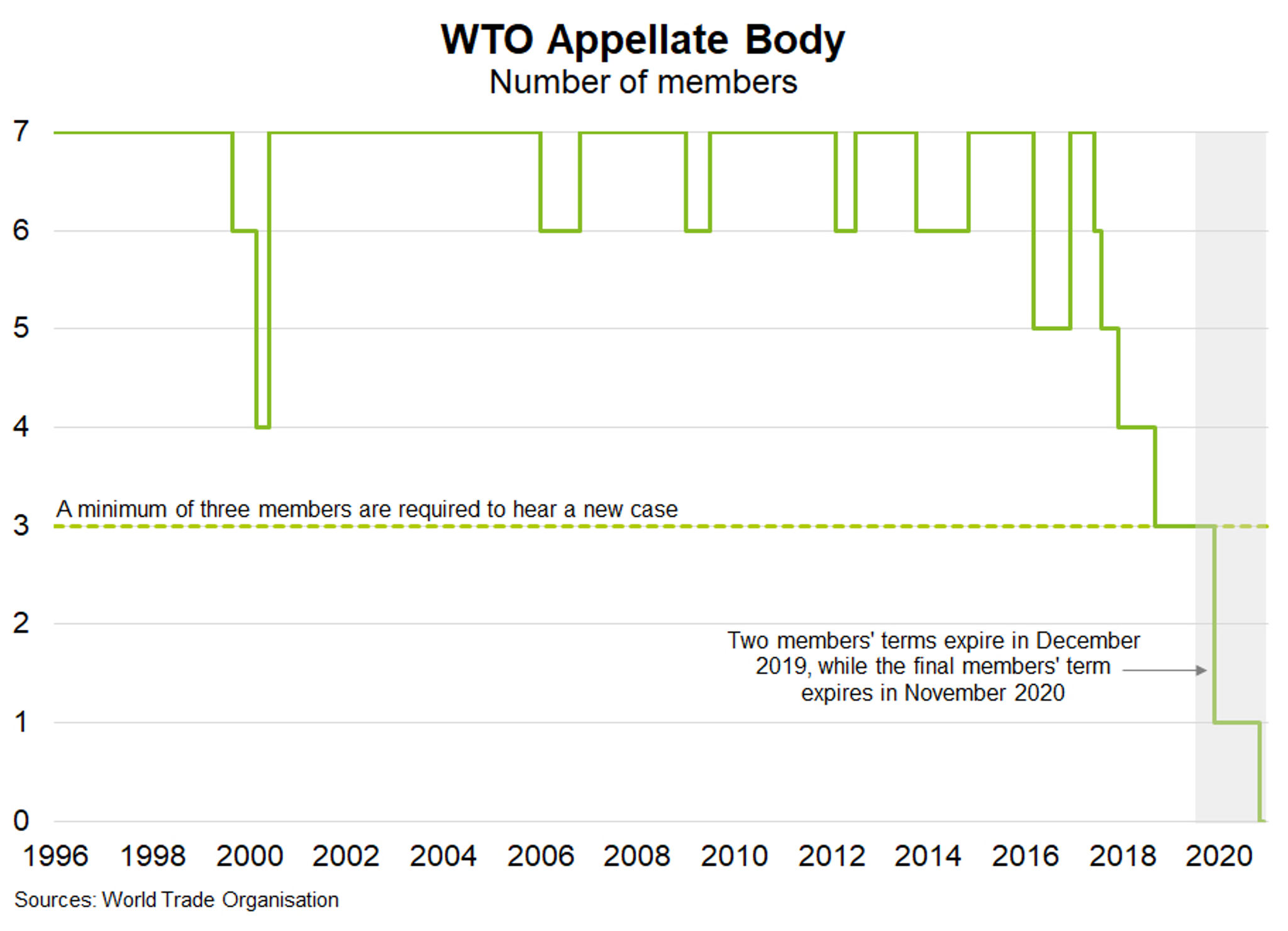Trade—One left standing on WTO Appellate Body
The World Trade Organization’s dispute resolution system is facing a key challenge, threatening the ability of the WTO to finalise disputes.
Countries bring disputes before the Dispute Settlement Body (DSB) and after consultations between them, a Member may request the establishment of a dispute settlement panel to consider that matter. Parties may appeal certain aspects of a panel’s findings to the Appellate Body (AB), which can uphold, modify or reverse a panel’s finding.
The United States has been blocking the appointment of new AB members for the past two years, so that the AB is now down to the minimum of three members needed to consider an appeal. The terms of two AB members expire at the end of 2019 (Chart). If the impasse is not resolved, and unless parties to a dispute agree otherwise, disputing parties retain the right to appeal to the (non-functioning) AB, risking procedural uncertainty and the possibility of the dispute remaining unresolved. The AB impasse does not prevent panels from doing their job and issuing the reports of their findings.
Since the WTO’s inception in 1995, Australia has been involved in nine cases as a complainant, 16 as a respondent and 109 as a third party. Australia is currently engaged in cases relating to measures governing the sale of wine in Canada, as well as domestic support and export subsidy measures for sugar cane producers in India. Australia is also defending two challenges to its own measures related to anti-dumping duties on A4 copy paper from Indonesia, and standardised packaging of tobacco and tobacco products.

